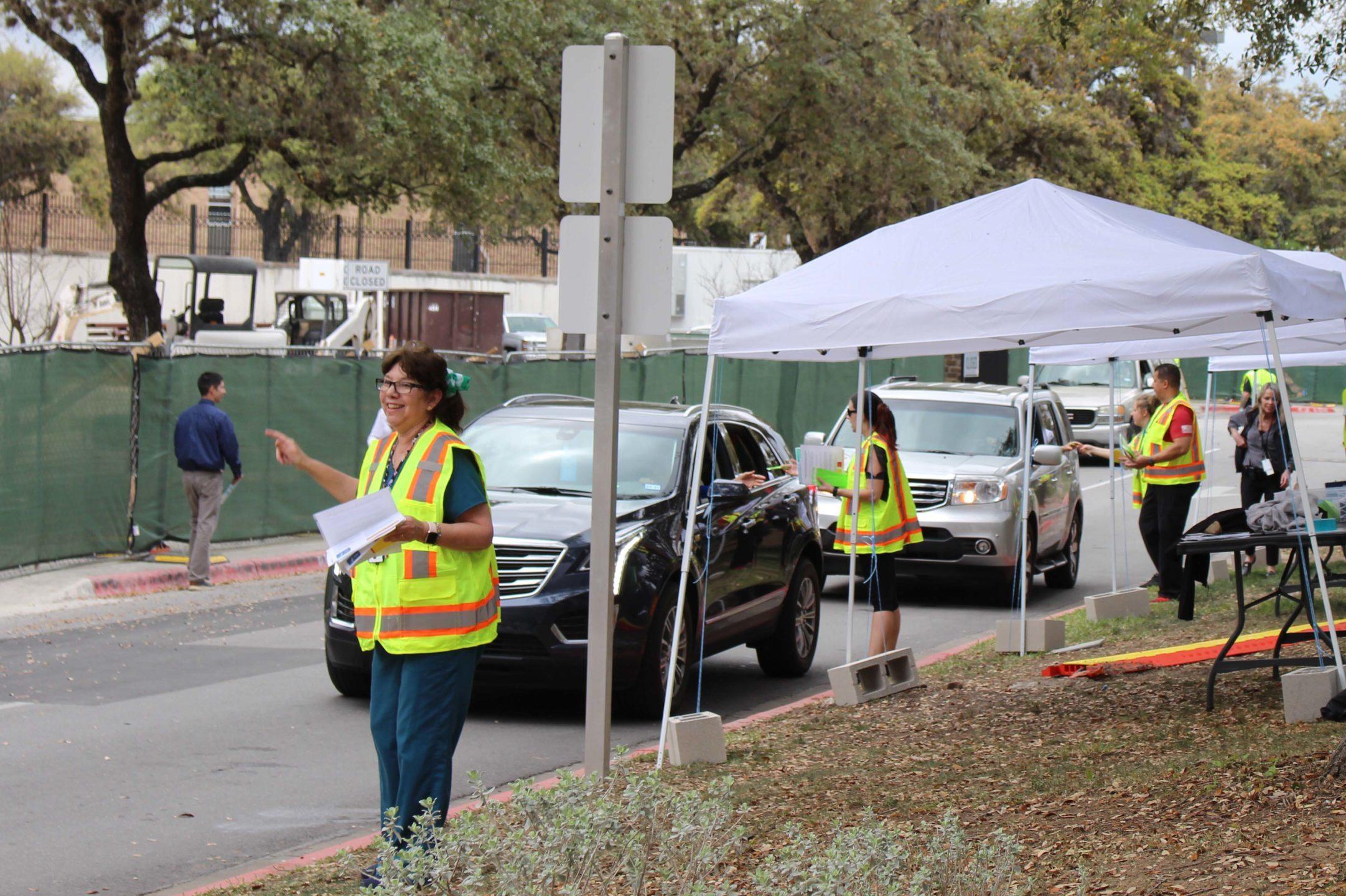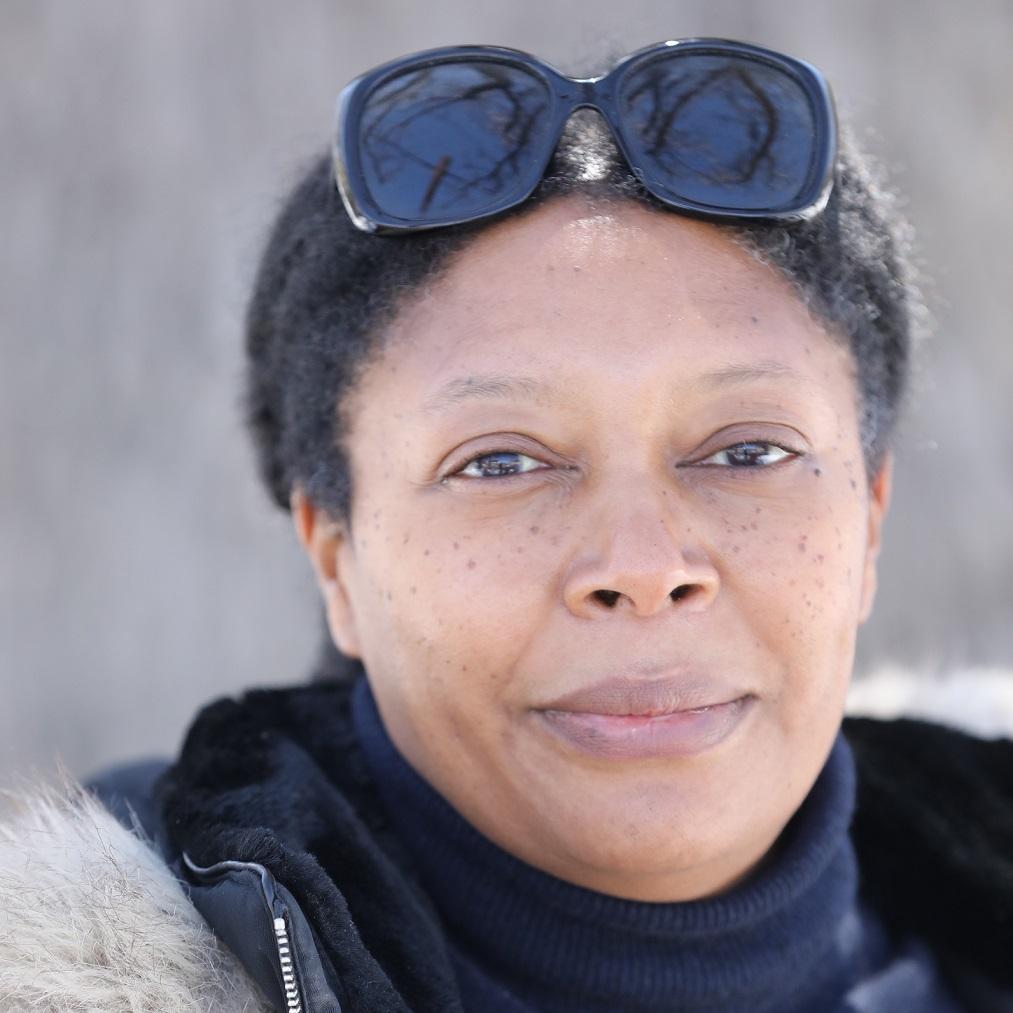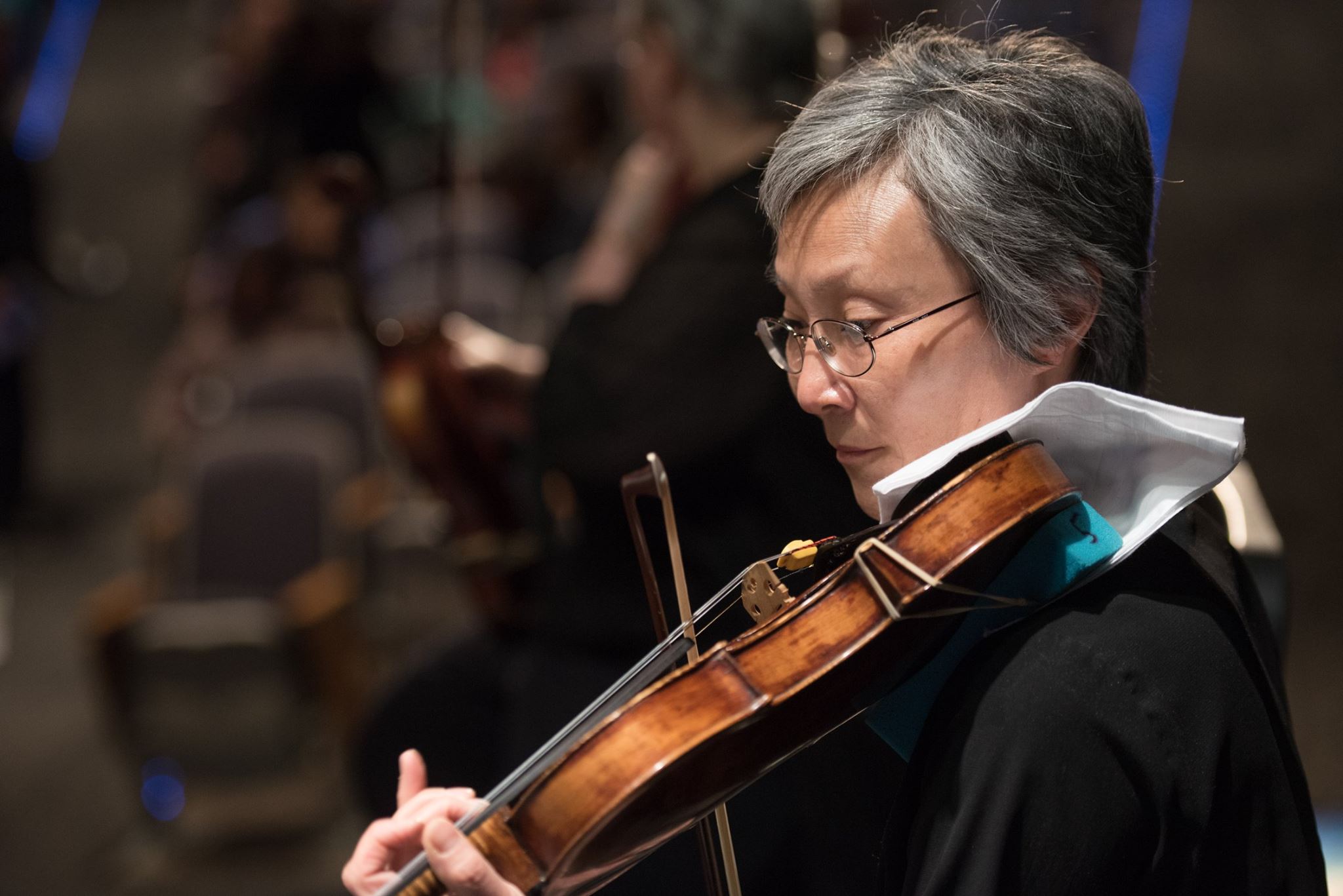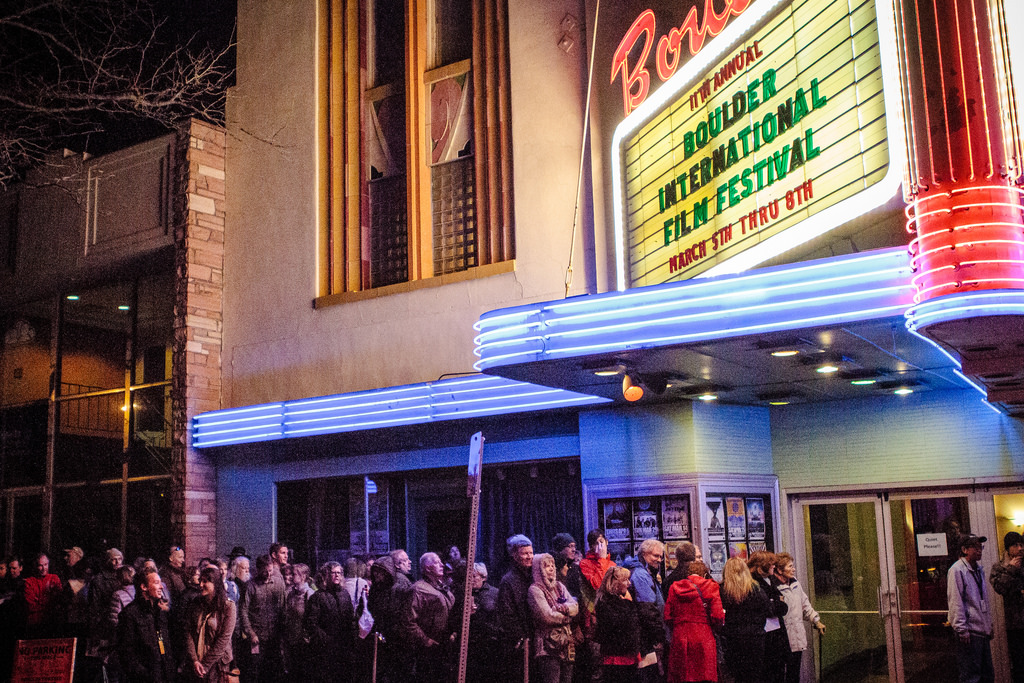
As cars lined up at the entrance to San Antonio's Audie Murphy Memorial VA Hospital, volunteer Barbara Abbey stood by the road with a script in hand.
Leaning toward drivers, she asked about their travel history, whether they've been exposed to anybody who's sick, and whether they were experiencing symptoms such as coughing, fever, or shortness of breath.
If any patients, staff, or contractors answered affirmatively to any of the questions, they were given yellow cards and told to proceed to a secondary screening area where workers in masks and gowns awaited.
The screening in San Antonio is part of a nationwide VA effort to reduce the spread of coronavirus. The agency is telling patients, staff, volunteers, and visitors to expect to be screened at VA hospitals, clinics, community living centers, and other health care facilities.
'I Think We're Ready For It'
Though the coronavirus outbreak is projected to overwhelm the U.S. hospital system, VA Secretary Robert Wilkie said in an interview that veterans will be taken care of.
"We are in the emergency preparedness business," Wilkie said. "We started marshaling our supplies at the beginning of February when our people told us that there was a potential for this [virus] coming here. So we have supplies, we have ventilators, we are working with the private sector to get as many masks as we need."
Wilkie has directed the VA to stop all elective surgeries to free up medical personnel. The move was also an attempt to preserve the system's supply of blood and personal protective equipment.
Coronavirus cases are expected to climb among veterans, who tend to be older and have underlying medical conditions which put them at greater risk. Wilkie said the agency hasn't experienced a surge of cases yet.
"To be honest with you, we have not had the 'great wave' of veterans with this virus," he said. "It may come. I think we're ready for it."
Questions About Preparedness
But not everyone at the VA thinks the situation is under control.
"This epidemic, both for the VA and for the larger world, exposes all the weaknesses in our system that are already there," said Marilyn Park, legislative representative with American Federation of Government Workers, a union that represents many VA employees.
Park said she's getting field reports from employees who feel they're not getting enough guidance about how to implement screenings. She said that the coronavirus response has a patchwork quality that compromises the safety of healthcare workers and patients.
"Each facility has a different screening procedure," Park said. "Different entrances are closed. Different screening questions are being asked. Different triage is going on once people are screened."
Members of Congress also have pressed the VA about its ability to handle a pandemic.
VA representatives told Congress in March that up to one in five veteran patients could become infected and need care.
Senator Jon Tester, a Montana Democrat, was one of a dozen senators who sent a letter to the VA asking about measures the agency had taken to protect veterans from COVID-19.
Tester said the department has been slow to talk about its needs and plans.
"I'll just be honest with you. They could have extra beds, but I don't know that they have the staff to man them," he said. "We've been understaffed in the VA for a number of years and a number of administrations."
Concerns About Coordination
The VA is the nation's largest health care system, with 172 medical facilities, more than 1200 outpatient sites, and 9 million veteran enrollees.
It's also spread out, with each center acting with a high degree of independence.
At a time when moving people, supplies, and equipment is necessary to save lives, Tester worries that coordination could be a challenge. To deal with that, the VA has set up emergency operation centers in each of its 18 networks.
Wilkie said those centers are sharing the same information across all medical facilities.
"Those centers reflect policy coming from us on what the protocol is for dealing with this situation," he said. " It is no different at Audie Murphy than it is from Hot Springs, South Dakota. It's the same medical standards."
At Audie Murphy Hospital in San Antonio, medical center director Chris Sandles watched the screenings in the parking lot.
"We're making adjustments where we need to in the process," he said. "But ultimately, my goal is to make sure that we're keeping both our patients and staff as safe as we possibly can."
This story was produced by the American Homefront Project, a public media collaboration that reports on American military life and veterans. Funding comes from the Corporation for Public Broadcasting.
Copyright 2020 North Carolina Public Radio – WUNC. To see more, visit North Carolina Public Radio – WUNC.

9(MDEyMDcxNjYwMDEzNzc2MTQzNDNiY2I3ZA004))








